- Home
Merging New Trends and Consolidating Good Practices in Languages for Specific Purposes
Published on December 22, 2023
–
Updated on March 8, 2024
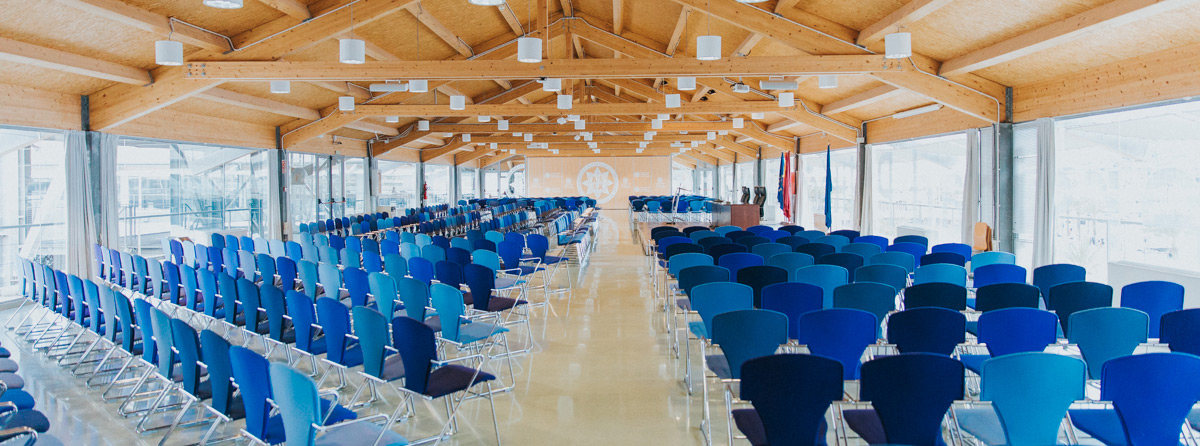
Dates
on the December 22, 2023
2nd EUt+ International Conference on Languages (EUtLC2024) - Universidad Politécnica de Cartagena (Spain) - (June 26-28, 2024)
The First EUt+ Conference on Languages (Darmstadt, 2023) provided a unique opportunity for all participants to share and discuss experiences, ideas and research on but not limited to the main topic of the conference: “Multiculturalism in a Post Colonial Era: Languages and European Values.”
This time the 2nd conference is shifting the focus to a very current topic like AI large-language models (LLMs), in a bid to merge new trends and further approaches into language teaching. The use of generative AI in educational settings is nowadays receiving considerable attention as a result of the irruption and wider availability of ChatGPT and other AI-powered chatbots such as Google’s Bard or Anthropic’s Claude. AI seems to offer such wide range of opportunities and challenges to be explored within the realm of language teaching that dealing with this topic at a conference at the core of the European University of Technology (EUt+) is arguably a must. However, other approaches to language teaching which have demonstrated to be effective are worth preserving and fostering as well. Therefore, both innovation and consolidation of good practices in Languages for Specific Purposes constitute the guiding thread of the conference.
The conference welcomes submissions on all aspects of Languages for Specific Purposes, particularly on the languages of the EUt+ members: English, French, Spanish, German, Latvian, Rumanian, Bulgarian, Cypriot Greek and Italian.
Suggested topics
Abstracts should include introduction, aims, theoretical framework, methodology, discussion, results, and conclusions. Any of these sections may be omitted or replaced if the research requires it.
Please, add between 4-6 keywords after the main text, followed by the list of references in APA 7 style.
Presentations (15 minutes + 5 minutes discussions) are accepted in English, Spanish, French, German and Italian, but an abstract must be provided also in English when the language of the presentation is other than English.
Each author can submit a maximum of 2 proposals (either individual or co-authored). Please state if you intend to present in site or online.
For queries, please contact us at eutlc2024@upct.es and update information at the conference website (https://www.univ-tech.eu/merging-new-trends-and-consolidating-good-practices-in-languages-for-specific-purposes).
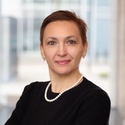 Slobodanka Dimova is a Professor of Multilingualism and Language Assessment at the University of Copenhagen, where she is also the Deputy Director of the Centre for Internationalisation and Parallel Language Use (CIP) and coordinator of the Test of Oral English for Academic Staff (TOEPAS). She starts her position as President of the European Association for Language Testing and Assessment (EALTA) in June 2024 and serves as an Editorial Board member of the Journal of English Medium Instruction. Her latest co-authored books and edited volumes include EMI classroom communication: A corpus-based approach (2023), Local language testing practice across contexts (2023), and The evolution of EMI research in European higher education (2022). She is currently the principal investigator of the project, Towards a new model of communicative competence in multilingual higher education (2023-2027), funded by the Danish Independent Research Fund.
Slobodanka Dimova is a Professor of Multilingualism and Language Assessment at the University of Copenhagen, where she is also the Deputy Director of the Centre for Internationalisation and Parallel Language Use (CIP) and coordinator of the Test of Oral English for Academic Staff (TOEPAS). She starts her position as President of the European Association for Language Testing and Assessment (EALTA) in June 2024 and serves as an Editorial Board member of the Journal of English Medium Instruction. Her latest co-authored books and edited volumes include EMI classroom communication: A corpus-based approach (2023), Local language testing practice across contexts (2023), and The evolution of EMI research in European higher education (2022). She is currently the principal investigator of the project, Towards a new model of communicative competence in multilingual higher education (2023-2027), funded by the Danish Independent Research Fund.
Plenary speech (to be announced); also involved in the workshop on Multilingualism and Interculturality.
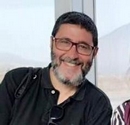 Pascual Pérez Paredes is Professor of Applied Linguistics and Linguistics, University of Murcia, and former Lecturer in Research in Second Language Education at the University of Cambridge. His main research interests are the use of corpus linguistics methods in applied linguistics, corpora and digital resources in language education, and corpus-assisted discourse analysis. Pascual is Assistant Editor of CUP ReCALL. He is now the PI of a European project that examines intra-mobility discourses of EU citizens in the EU. For more info check out: https://webs.um.es/pascualf
Pascual Pérez Paredes is Professor of Applied Linguistics and Linguistics, University of Murcia, and former Lecturer in Research in Second Language Education at the University of Cambridge. His main research interests are the use of corpus linguistics methods in applied linguistics, corpora and digital resources in language education, and corpus-assisted discourse analysis. Pascual is Assistant Editor of CUP ReCALL. He is now the PI of a European project that examines intra-mobility discourses of EU citizens in the EU. For more info check out: https://webs.um.es/pascualf
Plenary speech "From data literacy to AI literacy: examining engagement with corpora and technology in language education".
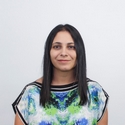 Anna Nicolaou is an English Language Instructor at the Language Centre of the Cyprus University of Technology (CUT). She holds a Ph.D. from Trinity College Dublin (Ireland), focusing on Intercultural Education and Global Competence learning through Virtual Exchange, a Master's degree in English Language Studies and Methods from the University of Warwick (United Kingdom) and a Bachelor’s degree in English Language and Literature from the National and Kapodistrian University of Athens (Greece). Prior to joining the Cyprus University of Technology, she worked for many years as a Senior Lecturer in private higher education. She currently teaches English for Academic and Specific Academic Purposes. Her research interests include Intercultural Education, Virtual Exchange, Multilingualism, as well as Computer-Assisted Language Learning. She has published scientific articles in internationally acclaimed journals and has participated in research programs and academic conferences.
Anna Nicolaou is an English Language Instructor at the Language Centre of the Cyprus University of Technology (CUT). She holds a Ph.D. from Trinity College Dublin (Ireland), focusing on Intercultural Education and Global Competence learning through Virtual Exchange, a Master's degree in English Language Studies and Methods from the University of Warwick (United Kingdom) and a Bachelor’s degree in English Language and Literature from the National and Kapodistrian University of Athens (Greece). Prior to joining the Cyprus University of Technology, she worked for many years as a Senior Lecturer in private higher education. She currently teaches English for Academic and Specific Academic Purposes. Her research interests include Intercultural Education, Virtual Exchange, Multilingualism, as well as Computer-Assisted Language Learning. She has published scientific articles in internationally acclaimed journals and has participated in research programs and academic conferences.
Workshop: Teaching Languages in Virtual Environments.
 Natalia Carbajosa Palmero is Associate Professor of Academic and Professional English at the Technical University of Cartagena, and currently she is also the Vice-dean for International Relations at the Faculty of Business Management. As a scholar, she has specialized is twentieth-century Anglo-American poetry and translation.
Natalia Carbajosa Palmero is Associate Professor of Academic and Professional English at the Technical University of Cartagena, and currently she is also the Vice-dean for International Relations at the Faculty of Business Management. As a scholar, she has specialized is twentieth-century Anglo-American poetry and translation.
Workshop: Multilingualism and Interculturality through Dramatization: Ideas for EUT+ environments.
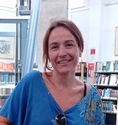 Camino Rea Rizzo is currently Deputy Director of International Affairs at the Technical School of Telecommunication Engineering of the Technical University of Cartagena, where she has been a full-time lecturer in the Area of Modern Languages since 2015 and has been delivering courses of English for Specific Purposes. Previously, she combined a post of English teacher at the Language Centre of the UPCT (1999-2015) and a post of assistant-lecturer at the English Department of the Faculty of Humanities of the University of Murcia (2009-2015). Her main research interest is Corpus Linguistics, focused on corpus-driven description of specialized languages, in addition to ESP, and English as a Medium of Instruction (EMI). In that respect, she has been involved in subject-teacher training (EMI and CLIL methodologies, and academic English). She has also coordinated several teaching innovation projects aimed to the introduction of English as a vehicular language in teaching at UPCT.
Camino Rea Rizzo is currently Deputy Director of International Affairs at the Technical School of Telecommunication Engineering of the Technical University of Cartagena, where she has been a full-time lecturer in the Area of Modern Languages since 2015 and has been delivering courses of English for Specific Purposes. Previously, she combined a post of English teacher at the Language Centre of the UPCT (1999-2015) and a post of assistant-lecturer at the English Department of the Faculty of Humanities of the University of Murcia (2009-2015). Her main research interest is Corpus Linguistics, focused on corpus-driven description of specialized languages, in addition to ESP, and English as a Medium of Instruction (EMI). In that respect, she has been involved in subject-teacher training (EMI and CLIL methodologies, and academic English). She has also coordinated several teaching innovation projects aimed to the introduction of English as a vehicular language in teaching at UPCT.
Workshop: Multilingual and Multidisciplinary Glossary.
This time the 2nd conference is shifting the focus to a very current topic like AI large-language models (LLMs), in a bid to merge new trends and further approaches into language teaching. The use of generative AI in educational settings is nowadays receiving considerable attention as a result of the irruption and wider availability of ChatGPT and other AI-powered chatbots such as Google’s Bard or Anthropic’s Claude. AI seems to offer such wide range of opportunities and challenges to be explored within the realm of language teaching that dealing with this topic at a conference at the core of the European University of Technology (EUt+) is arguably a must. However, other approaches to language teaching which have demonstrated to be effective are worth preserving and fostering as well. Therefore, both innovation and consolidation of good practices in Languages for Specific Purposes constitute the guiding thread of the conference.
The conference welcomes submissions on all aspects of Languages for Specific Purposes, particularly on the languages of the EUt+ members: English, French, Spanish, German, Latvian, Rumanian, Bulgarian, Cypriot Greek and Italian.
Suggested topics
- Applied Linguistics
- AI language models
- Bi/Multilingualism
- Cultural Studies
- Culture and Language
- Discourse Analysis
- Educational Policy
- Human Rights in Languages
- Impact of ChatGPT
- Intercultural Communication
- Language Assessment
- Language and Cultural Identity
- Language and Gender
- Language and Technology
- Language and the Media
- Lifelong learning
- Professional development in languages
- Research approaches in languages
- Translation and interpretation
Plenary speakers and workshop leaders
- Slobodanka Dimova (University of Copenhagen)
- Pascual Pérez Paredes (University of Murcia)
- Anna Nicolaou (Cyprus University of Technology)
- Natalia Carbajosa Palmero (Technical University of Cartagena)
- Camino Rea Rizzo (Technical University of Cartagena)
Key dates
- Abstract submission deadline: 15 March 2024
- Acceptance/Rejection: 15 April 2024
- Registration: 16 April- 6 May 2024
Instructions for submissions
Prospective authors may submit an abstract between 400-500 words excluding bibliography to the following email address: EUtLC2024@upct.esAbstracts should include introduction, aims, theoretical framework, methodology, discussion, results, and conclusions. Any of these sections may be omitted or replaced if the research requires it.
Please, add between 4-6 keywords after the main text, followed by the list of references in APA 7 style.
Presentations (15 minutes + 5 minutes discussions) are accepted in English, Spanish, French, German and Italian, but an abstract must be provided also in English when the language of the presentation is other than English.
Each author can submit a maximum of 2 proposals (either individual or co-authored). Please state if you intend to present in site or online.
Workshops
Participants may register to attend workshops only without presenting at the conference.- Multilingual and Multidisciplinary Glossary Workshop: A workshop focusing on the creation and development of a multidisciplinary glossary of terms and expressions within the academic and university context in all languages spoken in the EUt+.
- Multilingualism and Interculturality through Dramatization: Ideas for EUt+ environments. In this workshop, we aim to enhance the skills of the participants in relation to the development of intercultural competence in themselves and with a view to greater integration of international students within EUt+ partner countries. Before the workshop we will collect information from the participants through questionnaires about customs and stereotypes of their own academic and cultural environments and we will prepare an open script in English. From there, the participants will modify the initial script with content in their own native and teaching languages and will dramatize them in the form of short comic dialogues, possibly in different locations around the campus. Furthermore, the multilingual content generated will later be reworked to form part of a small manual, conceived as a micro-theatre (“ice-breaker activity”) in the future.
- Teaching Languages in Virtual Environments: A workshop on best practices in language teaching within virtual environments, focusing on central aspects such as intercultural education, the acquisition of the so-called "global competence" through virtual exchanges, and technology-assisted language learning, among others.
Convenor
Camino Rea RizzoOrganising committee
- Antonio Fornet Vivancos
- Nicolás Montalbán Martínez
- Natalia Carbajosa Palmero
- Yolanda Noguera Díaz
- Margarita Zaragoza Ruiz
- Melissa Wattam
Scientific committee
- Elis Kakoulli Constantinou, Cyprus University of Technology (Cyprus)
- Irene Fantappiè, University of Cassino and Southern Latium (Italy)
- Antonio Fornet Vivancos, Technical University of Cartagena (Spain)
- Vessela Frengova, Technical University of Sofia (Bulgaria)
- Stephen Le Coche, Technical University of Troyes (France)
- Nicolás Montalbán Martínez, Technical University of Cartagena (Spain)
- Stefanie Morgret, Darmstadt University of Applied Sciences (Germany)
- Sonia Munteanu, Technical University of Cluj Napoca (Romania)
- Anna Nicolaou, Cyprus University of Technology (Cyprus)
- Tamara Onnis, Darmstadt University of Applied Sciences (Germany)
- Camino Rea Rizzo, Technical University of Cartagena (Spain)
- Anna Sedova, Riga Technical University (Latvia)
- Catherine Spencer, Technical University of Dublin (Ireland)
- Mirna Vohnsen, Technical University of Dublin (Ireland)
Publication
The conference proceedings will be published as a book, with an ISBN, a DOI, and a Handle. Additionally, each paper will have an individual DOI and a Handle, and will be published in open access, under a Creative Commons license (BY-NC-ND), in the Digital Repository of the Technical University of Cartagena (UPCT) (unless authors explicitly express their disagreement), with the aim to provide the conference with the maximum possible dissemination and allowing free access to all contributions.For queries, please contact us at eutlc2024@upct.es and update information at the conference website (https://www.univ-tech.eu/merging-new-trends-and-consolidating-good-practices-in-languages-for-specific-purposes).
 Slobodanka Dimova is a Professor of Multilingualism and Language Assessment at the University of Copenhagen, where she is also the Deputy Director of the Centre for Internationalisation and Parallel Language Use (CIP) and coordinator of the Test of Oral English for Academic Staff (TOEPAS). She starts her position as President of the European Association for Language Testing and Assessment (EALTA) in June 2024 and serves as an Editorial Board member of the Journal of English Medium Instruction. Her latest co-authored books and edited volumes include EMI classroom communication: A corpus-based approach (2023), Local language testing practice across contexts (2023), and The evolution of EMI research in European higher education (2022). She is currently the principal investigator of the project, Towards a new model of communicative competence in multilingual higher education (2023-2027), funded by the Danish Independent Research Fund.
Slobodanka Dimova is a Professor of Multilingualism and Language Assessment at the University of Copenhagen, where she is also the Deputy Director of the Centre for Internationalisation and Parallel Language Use (CIP) and coordinator of the Test of Oral English for Academic Staff (TOEPAS). She starts her position as President of the European Association for Language Testing and Assessment (EALTA) in June 2024 and serves as an Editorial Board member of the Journal of English Medium Instruction. Her latest co-authored books and edited volumes include EMI classroom communication: A corpus-based approach (2023), Local language testing practice across contexts (2023), and The evolution of EMI research in European higher education (2022). She is currently the principal investigator of the project, Towards a new model of communicative competence in multilingual higher education (2023-2027), funded by the Danish Independent Research Fund.Plenary speech (to be announced); also involved in the workshop on Multilingualism and Interculturality.
 Pascual Pérez Paredes is Professor of Applied Linguistics and Linguistics, University of Murcia, and former Lecturer in Research in Second Language Education at the University of Cambridge. His main research interests are the use of corpus linguistics methods in applied linguistics, corpora and digital resources in language education, and corpus-assisted discourse analysis. Pascual is Assistant Editor of CUP ReCALL. He is now the PI of a European project that examines intra-mobility discourses of EU citizens in the EU. For more info check out: https://webs.um.es/pascualf
Pascual Pérez Paredes is Professor of Applied Linguistics and Linguistics, University of Murcia, and former Lecturer in Research in Second Language Education at the University of Cambridge. His main research interests are the use of corpus linguistics methods in applied linguistics, corpora and digital resources in language education, and corpus-assisted discourse analysis. Pascual is Assistant Editor of CUP ReCALL. He is now the PI of a European project that examines intra-mobility discourses of EU citizens in the EU. For more info check out: https://webs.um.es/pascualfPlenary speech "From data literacy to AI literacy: examining engagement with corpora and technology in language education".
 Anna Nicolaou is an English Language Instructor at the Language Centre of the Cyprus University of Technology (CUT). She holds a Ph.D. from Trinity College Dublin (Ireland), focusing on Intercultural Education and Global Competence learning through Virtual Exchange, a Master's degree in English Language Studies and Methods from the University of Warwick (United Kingdom) and a Bachelor’s degree in English Language and Literature from the National and Kapodistrian University of Athens (Greece). Prior to joining the Cyprus University of Technology, she worked for many years as a Senior Lecturer in private higher education. She currently teaches English for Academic and Specific Academic Purposes. Her research interests include Intercultural Education, Virtual Exchange, Multilingualism, as well as Computer-Assisted Language Learning. She has published scientific articles in internationally acclaimed journals and has participated in research programs and academic conferences.
Anna Nicolaou is an English Language Instructor at the Language Centre of the Cyprus University of Technology (CUT). She holds a Ph.D. from Trinity College Dublin (Ireland), focusing on Intercultural Education and Global Competence learning through Virtual Exchange, a Master's degree in English Language Studies and Methods from the University of Warwick (United Kingdom) and a Bachelor’s degree in English Language and Literature from the National and Kapodistrian University of Athens (Greece). Prior to joining the Cyprus University of Technology, she worked for many years as a Senior Lecturer in private higher education. She currently teaches English for Academic and Specific Academic Purposes. Her research interests include Intercultural Education, Virtual Exchange, Multilingualism, as well as Computer-Assisted Language Learning. She has published scientific articles in internationally acclaimed journals and has participated in research programs and academic conferences.Workshop: Teaching Languages in Virtual Environments.
 Natalia Carbajosa Palmero is Associate Professor of Academic and Professional English at the Technical University of Cartagena, and currently she is also the Vice-dean for International Relations at the Faculty of Business Management. As a scholar, she has specialized is twentieth-century Anglo-American poetry and translation.
Natalia Carbajosa Palmero is Associate Professor of Academic and Professional English at the Technical University of Cartagena, and currently she is also the Vice-dean for International Relations at the Faculty of Business Management. As a scholar, she has specialized is twentieth-century Anglo-American poetry and translation.Workshop: Multilingualism and Interculturality through Dramatization: Ideas for EUT+ environments.
 Camino Rea Rizzo is currently Deputy Director of International Affairs at the Technical School of Telecommunication Engineering of the Technical University of Cartagena, where she has been a full-time lecturer in the Area of Modern Languages since 2015 and has been delivering courses of English for Specific Purposes. Previously, she combined a post of English teacher at the Language Centre of the UPCT (1999-2015) and a post of assistant-lecturer at the English Department of the Faculty of Humanities of the University of Murcia (2009-2015). Her main research interest is Corpus Linguistics, focused on corpus-driven description of specialized languages, in addition to ESP, and English as a Medium of Instruction (EMI). In that respect, she has been involved in subject-teacher training (EMI and CLIL methodologies, and academic English). She has also coordinated several teaching innovation projects aimed to the introduction of English as a vehicular language in teaching at UPCT.
Camino Rea Rizzo is currently Deputy Director of International Affairs at the Technical School of Telecommunication Engineering of the Technical University of Cartagena, where she has been a full-time lecturer in the Area of Modern Languages since 2015 and has been delivering courses of English for Specific Purposes. Previously, she combined a post of English teacher at the Language Centre of the UPCT (1999-2015) and a post of assistant-lecturer at the English Department of the Faculty of Humanities of the University of Murcia (2009-2015). Her main research interest is Corpus Linguistics, focused on corpus-driven description of specialized languages, in addition to ESP, and English as a Medium of Instruction (EMI). In that respect, she has been involved in subject-teacher training (EMI and CLIL methodologies, and academic English). She has also coordinated several teaching innovation projects aimed to the introduction of English as a vehicular language in teaching at UPCT.Workshop: Multilingual and Multidisciplinary Glossary.
Date of update 08 March 2024

